Czech, historically also known as Bohemian, is a West Slavic language of the Czech–Slovak group, written in Latin script. Spoken by over 12 million people including second language speakers, it serves as the official language of the Czech Republic. Czech is closely related to Slovak, to the point of high mutual intelligibility, as well as to Polish to a lesser degree. Czech is a fusional language with a rich system of morphology and relatively flexible word order. Its vocabulary has been extensively influenced by Latin and German.
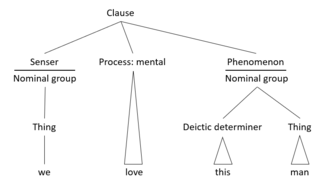
Functional linguistics is an approach to the study of language characterized by taking systematically into account the speaker's and the hearer's side, and the communicative needs of the speaker and of the given language community. Linguistic functionalism spawned in the 1920s to 1930s from Ferdinand de Saussure's systematic structuralist approach to language (1916).
In linguistics, the topic, or theme, of a sentence is what is being talked about, and the comment is what is being said about the topic. This division into old vs. new content is called information structure. It is generally agreed that clauses are divided into topic vs. comment, but in certain cases the boundary between them depends on which specific grammatical theory is being used to analyze the sentence.
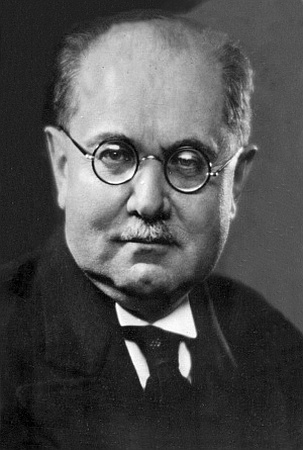
Vilém Mathesius was a Czech linguist, literary historian and co-founder of the Prague Linguistic Circle. He is considered one of the founders of structural functionalism in linguistics.
The Prague school or Prague linguistic circle is a language and literature society. It started in 1926 as a group of linguists, philologists and literary critics in Prague. Its proponents developed methods of structuralist literary analysis and a theory of the standard language and of language cultivation from 1928 to 1939. The linguistic circle was founded in the Café Derby in Prague, which is also where meetings took place during its first years.
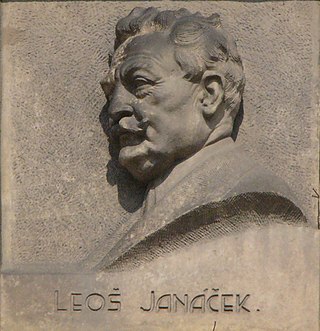
The Glagolitic Mass is a composition for soloists, double chorus, organ and orchestra by Leoš Janáček. Janáček completed the work in 1926. It received its premiere by the Brno Arts Society, conducted by Jaroslav Kvapil, in Brno on 5 December 1927. Janáček revised the mass the next year.
In linguistics and especially phonology, functional load, or phonemic load, is the collection of words that contain a certain pronunciation feature that makes distinctions between other words. Phonemes with a high functional load distinguish a large number of words from other words, and phonemes with a low functional load distinguish relatively fewer words from other words. The omission or mishearing of features with a high functional load thus leads to more confusion than features with a low functional load.

Destiny is an opera in three acts by Leoš Janáček to a Czech libretto by the composer and Fedora Bartošová. Janáček began the work in 1903 and completed it in 1907. The inspiration for the opera came from a visit by Janáček in the summer of 1903, after the death of his daughter Olga, to the spa at Luhačovice. There, Janáček met Kamila Urválková, who had been the subject of an opera by Ludvík Čelanský, Kamila, where she felt that Čelanský had falsely depicted her personality. After learning that Janáček was a composer, Urválková persuaded Janáček to write another opera to counteract Čelanský's portrait of her.

Ota Filip was a Czech and German novelist and journalist.
Czech word order is relatively free. However, the Czech language belongs to the SVO type.
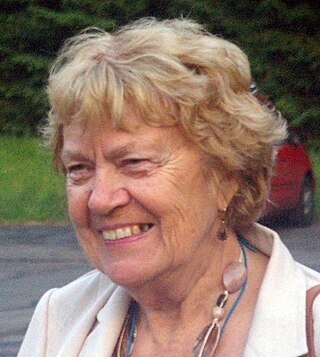
Eva Hajičová [ˈɛva ˈɦajɪt͡ʃovaː] is a Czech linguist, specializing in topic–focus articulation and corpus linguistics. In 2006, she was awarded the Association for Computational Linguistics (ACL) Lifetime Achievement Award. She was named a fellow of the ACL in 2011.

Jan Firbas, was a Czech linguist and a prominent representative of the Prague School of linguistics.

Libuše Domanínská was a Czech classical soprano who had a career in concert and opera from the 1940s through the 1970s. She was a leading member of the Brno National Theatre and later the Prague National Theatre where she sang a repertoire of 50 roles, especially as Janáček's Jenůfa, Káťa Kabanová and The Cunning Little Vixen. She was instrumental in making the composer's operas known internationally, both in recordings and guest appearances.
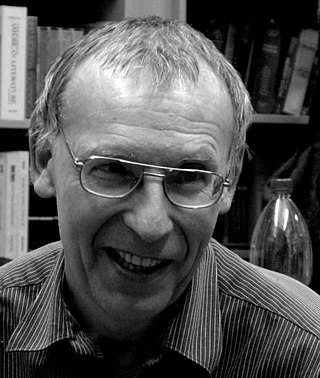
Aleš Klégr is a Czech linguist, professor of English language at Charles University in Prague. He specializes, among others, in lexicology, lexicography, semantics and morphology.
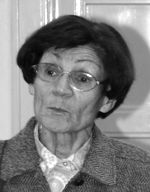
Libuše Dušková is a Czech linguist specializing in the fields of contrastive analysis of English grammar and functional syntax, member of the Prague Linguistic Circle and key representative of the Prague School of Linguistics. She is Professor Emerita of English Linguistics at Charles University. Her research spans a broad spectrum of topics in English linguistics, namely the verb phrase, the noun phrase, simple and complex sentences, the grammar-text interface, and aspects of the theory of Functional Sentence Perspective viewed through the prism of Jan Firbas' approach.
Pavel Materna was a Czech philosopher, logician and key representative of transparent intensional logic.
In linguistics, Communicative Dynamism (CD) is one of the key notions of the theory of Functional Sentence Perspective (FSP), developed mainly by Jan Firbas and his followers in the Prague School of Linguistics.

Thunder in the Hills is a 1946 Czech war drama film directed by Václav Kubásek and Josef Mach and starring Jaroslav Průcha, Marie Vásová and Miroslav Homola. It was shot at the Barrandov and Radlice Studios in Prague and on location around Brno and Svratka. The film's sets were designed by the art directors Štěpán Kopecký and Alois Mecera.

Aleš Svoboda was a Czech linguist, university professor, and a prominent representative of the Prague School of linguistics.











